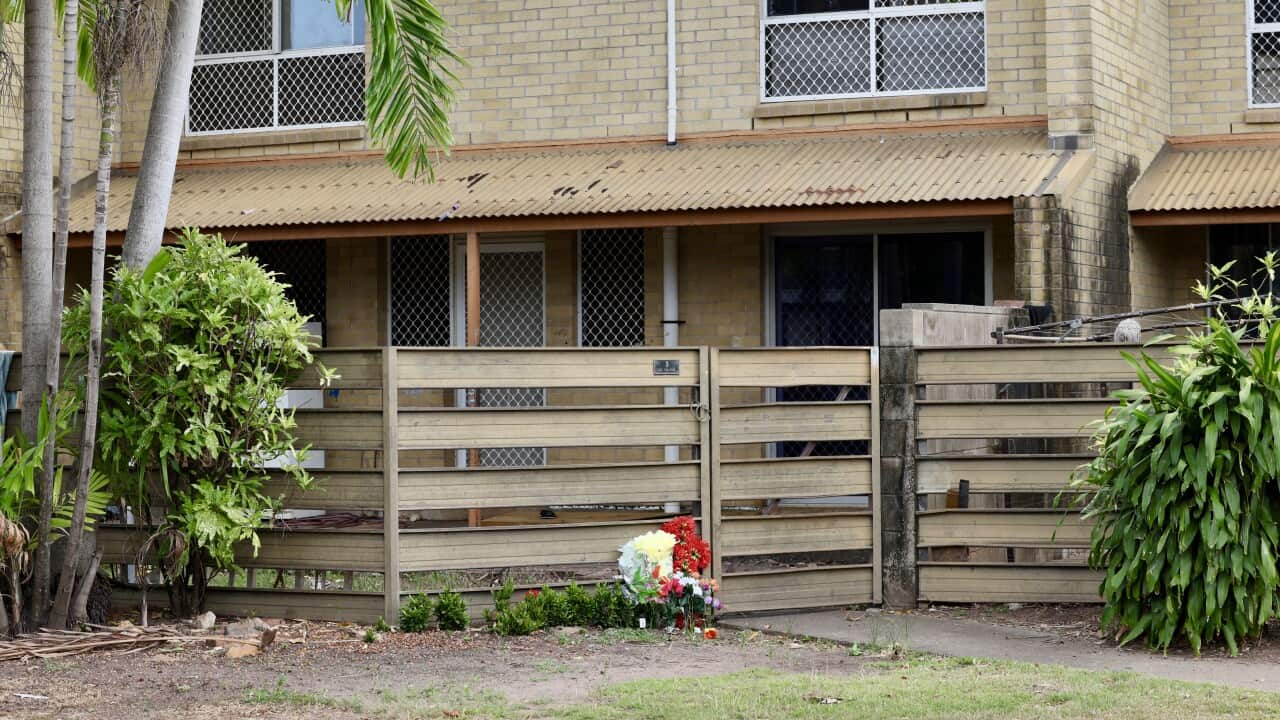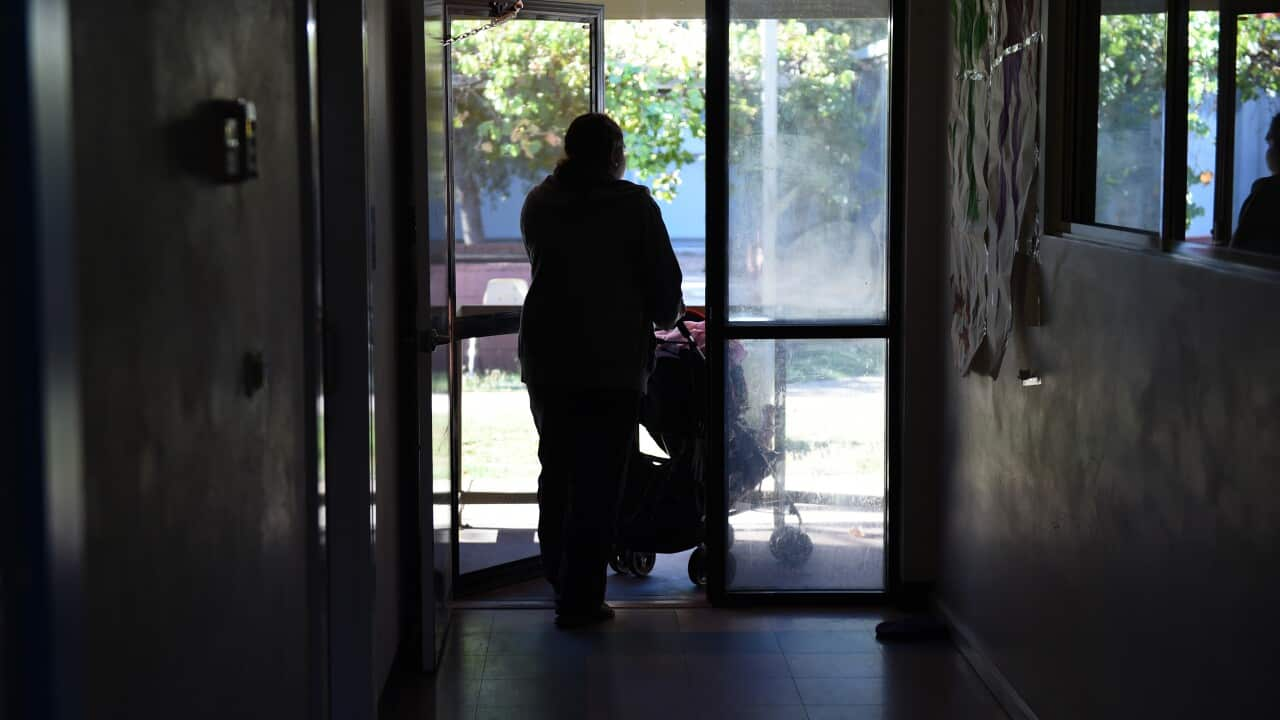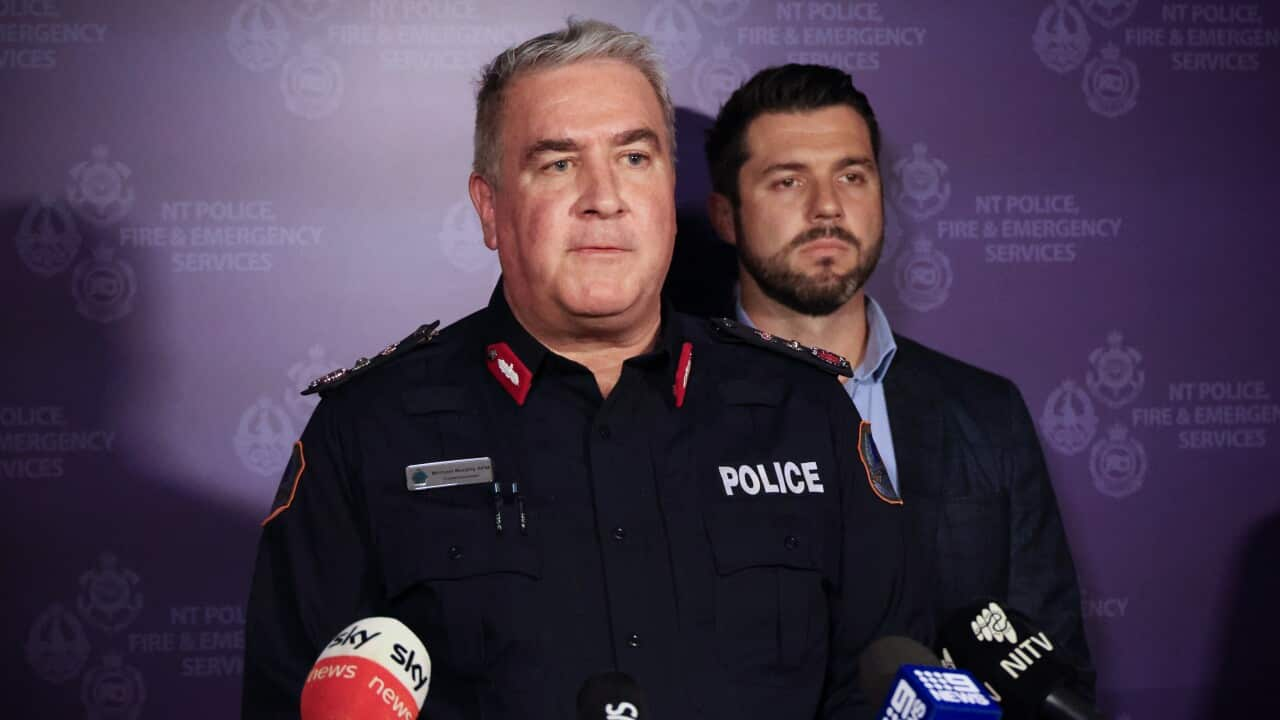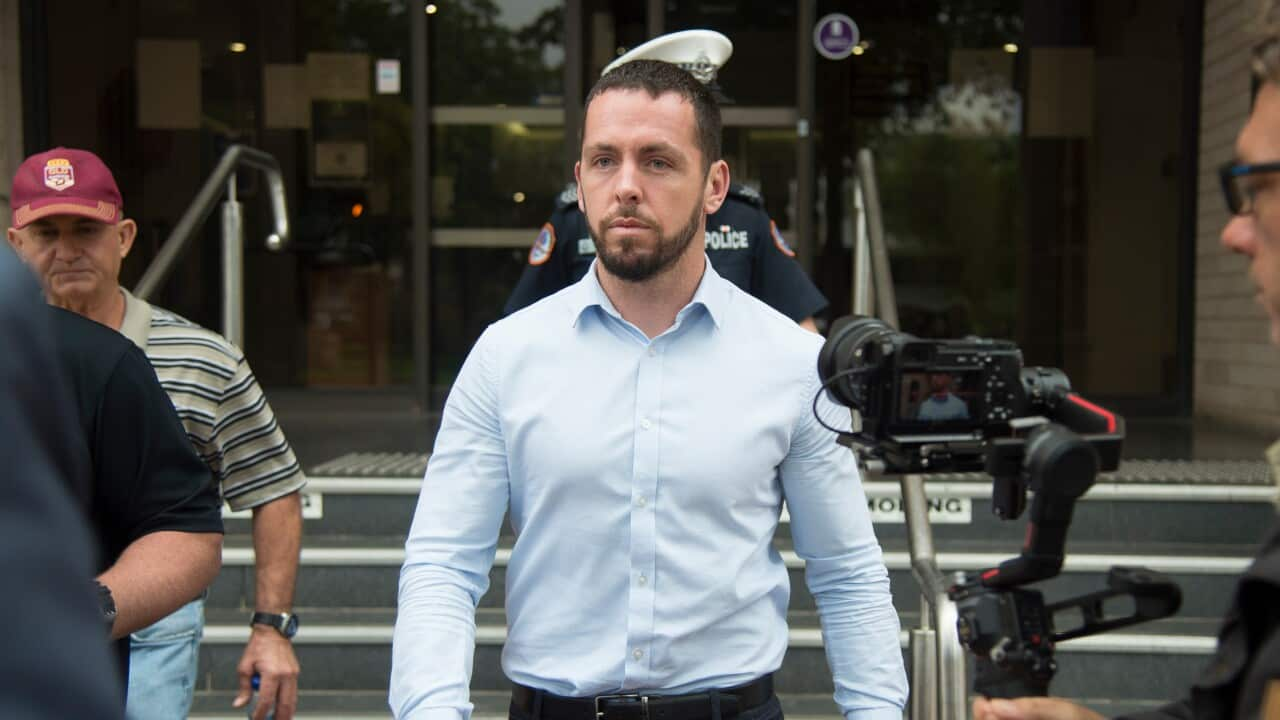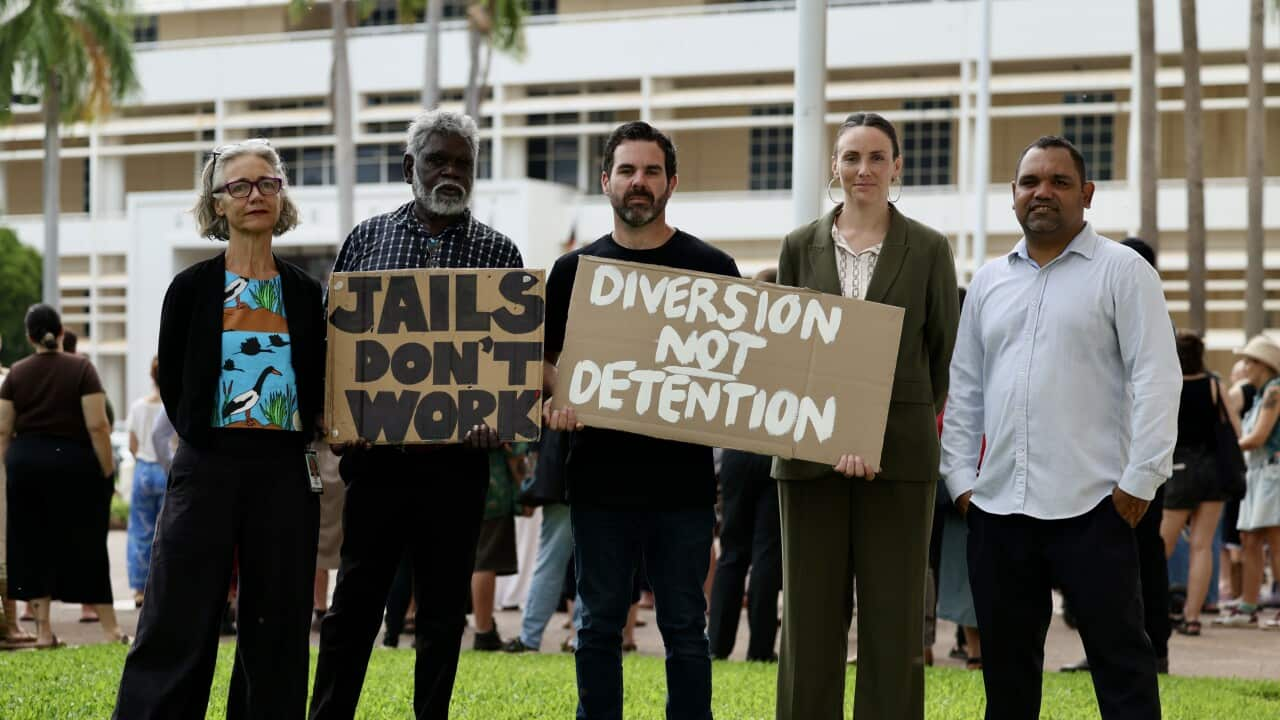Warning: this story discusses violence against women.
Last Monday night at Lajamanu, a remote community 870km south of Darwin, a 42-year-old Aboriginal woman was killed, allegedly stabbed by her partner.
She was the seventh Aboriginal woman killed in the Northern Territory less than five months.
Lauren Peric, chair of the NT Aboriginal Advisory Board on Domestic, Family and Sexual Violence, said in a statement to NITV that too many families have lost a loved one and are impacted by grief.
“The loss is also felt by the broader Aboriginal community in the NT that are saddened by increasing violence, and also have the shared experience of grief and trauma resulting from domestic violence," she said on behalf of the board.
“Northern Territory Aboriginal Advisory Board on Domestic, Family and Sexual Violence want the message to be heard that domestic violence is not part of our culture and needs to stop."
Daphne Daniels, from Ngukurr, alerted her fellow board members to an animation spoken in Roper Kriol, which talks about different kinds of violence such as physical, financial, cultural and ceremonial, social, sexual and verbal.
“Action is needed, not only in the justice space but reforming programs so that they will work for Aboriginal families," Ms Peric said.
"We know that too many times the programs don’t reach the women in remote communities, and that Aboriginal women don’t know how to access them or don’t have services available to help them.
"We need Aboriginal representation in the design of programs for emergency responses, prevention, building healthy relationships and healing trauma.
"The Board also advocates for Aboriginal men to take action and be part of the reform – to build systems and men’s behaviour programs that are meaningful for Aboriginal young men and adults.”
Northern Territory police are pleading with the community to "wake up" to an unfolding epidemic of domestic violence.
"This has to stop," NT Police Assistant Commissioner Travis Wurst said.
"The tragedy is mounting, and that tragedy is one that the Northern Territory cannot ignore - seven matters are being investigated by the Northern Territory police as domestic homicides since 1 June of this year.
"The Northern Territory cannot accept one death, let alone seven.
"It is something that the community needs to wake up to, deal with, and not accept - violence is not the answer."
Police said they had not seen this many people die "at the hands of another in a domestic situation" since the early 2000s in the NT and the vicarious trauma experienced by frontline workers, community and the public was hard to explain.
A further two women are fighting for life in Royal Darwin Hospital's intensive care unit, after assaults related to domestic violence, Assistant Commissioner Wurst said.
He said the man is in police custody and had been on parole at the time of the alleged stabbing, after being released from prison in April.
The woman is the third person allegedly killed in the Territory as a result of domestic violence in a fortnight after a sistergirl - a gender diverse person who identifies as female - was stabbed at Malak and another woman at Katherine the week before.
Funding needed immediately
Services are calling on the NT Government to urgently implement the $180 million in funding for domestic, family and sexual violence services it promised ahead of the August election.
The North Australian Aboriginal Family Legal Service (NAAFLS) have pledged to do whatever they can to support families and communities in Lajamanu.
“This is a very sad time and we’re mindful that families are now in sorry business,” NAAFLS chief executive Cindy Torrens said.
”What happened is an absolute tragedy.
"Yet again, another Aboriginal woman has lost her life through domestic and family violence ...
The ongoing death toll for our Aboriginal women in remote communities is absolutely unacceptable on any count, or measure, by any standard.
Caitlin Weatherby-Fell, chief executive of the Top End Women's Legal Service, told NITV that they and other services were stretched beyond breaking.
"We are just in the epicentre of a crisis that somehow seems to be getting even worse," she said.
"We have an ongoing, escalating crisis in the Territory where Aboriginal women across our jurisdiction are increasingly unsafe, and they're unsafe at home, they're unsafe on the street, they're unsafe among family, or not among among family.
"As a sector, it's becoming harder and harder to respond to this crisis, because whilst the crisis itself is escalating, our resources and our capacity are only going backwards with respect to the funding that we are receiving."
In August, TEWLS was forced to turn away 67 women and non-binary persons because they didn't have the capacity to see them within four weeks.
"For some of our clients who we see up at the Royal Darwin hospital through our new health justice partnership, they are being discharged before our staff are able to attend upon them and going back home into an unsafe situation," Ms Weatherby-Fell said.
"So that's nearly one in two women currently who we are not able to help, and it's just not good enough."
Aboriginal and Torres Strait Islander Social Justice Commissioner Katie Kiss told NITV that First Nations women are dying at unprecedented rates at the hands of domestic and family violence and other violent environments, like in prisons and detention centres.
"First Nations women are being dehumanised and criminalised, rather than being portrayed as survivors of domestic and family violence ... ," she said.
"The government needs to take action on this, they need to ensure the safety of our women.
"They need to ensure that where domestic violence perpetrators are being let out on bail or back into their communities, that women are protected in those circumstances, but also that the profile is raised around the lives of our women and making sure that they matter in these conversations and shining a spotlight on the circumstances."
Newly elected Greens parliamentarian and domestic violence survivor Kat McNamara said consecutive governments have failed when it comes to the provision of frontline services.
"I have said this many times before, and I'll say it again, domestic family and sexual violence is the largest social issue we face," the member for Nightcliff said in their maiden speech to parliament.
"Women and children are being turned away from shelters every single day.
"Those frontline services have been crying out for adequate funding for decades from both sides of politics.
"This is not good enough."
NT Minister for Prevention of Domestic Violence Robyn Cahill said in a statement that the CLP Government’s top priority is community safety.
"This includes keeping women and children safe and supporting police and other frontline services to reduce crime, including domestic violence," she said.
Ms Cahill said the government will invest an additional $180 million into domestic violence prevention over five years and is working to negotiate the NT’s share of National Cabinet’s $4.7 billion package to help people trying to escape violent home situations.
"Given our significant over representation in domestic violence statistics, a per capita funding formula simply won’t cut it in the Territory," she said.
"We will introduce electronic monitoring of offenders who are bailed and restore mandatory sentencing for DV offences."
1800 RESPECT (1800 737 732)
Lifeline 13 11 14
13YARN 13 92 76
